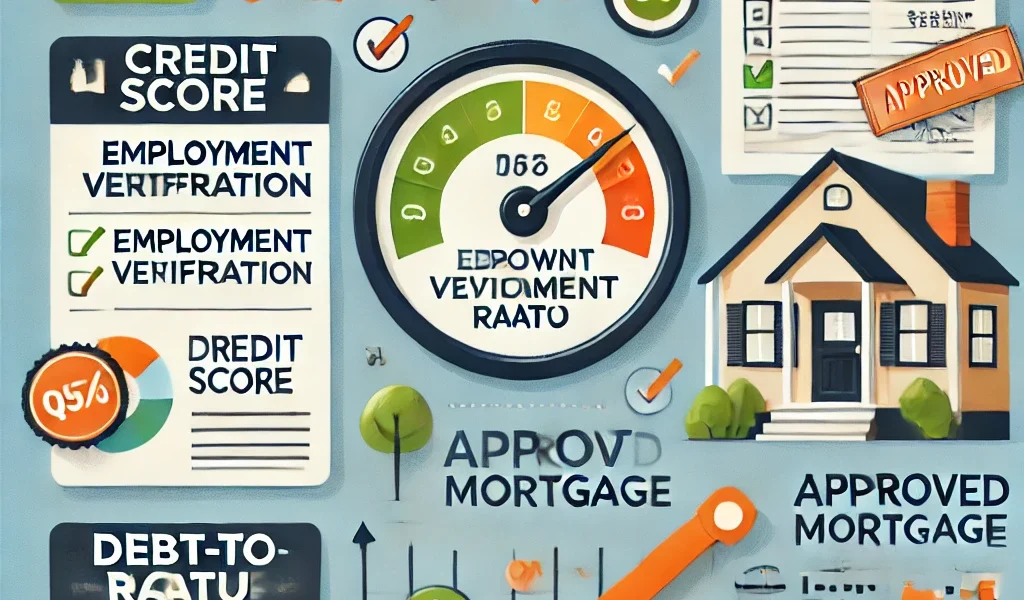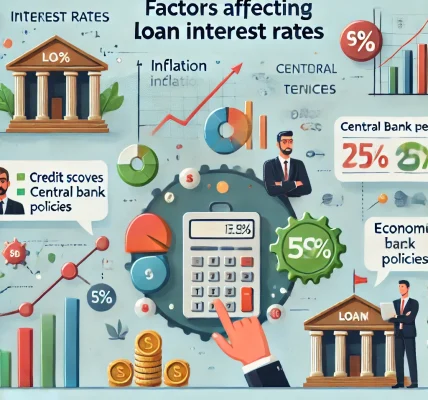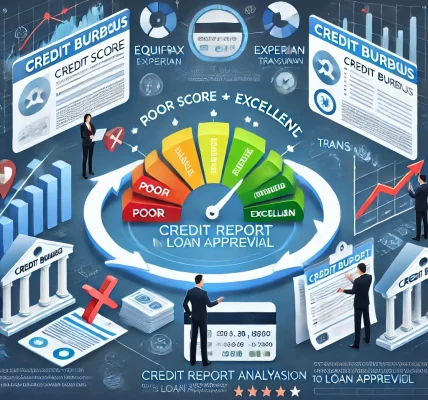Introduction
Buying a home is a significant milestone, and securing a mortgage loan is often a crucial step in the process. However, qualifying for a mortgage can be challenging, especially if you’re unfamiliar with the requirements. Understanding the key factors that lenders evaluate can help you improve your eligibility and increase your chances of loan approval.
This article provides a detailed guide on how to qualify for a mortgage loan, including the essential requirements, tips to strengthen your application, and common mistakes to avoid.
Understanding Mortgage Loan Qualification Criteria
Lenders assess multiple factors before approving a mortgage loan. Here are the most critical eligibility criteria:
1. Credit Score
Your credit score plays a vital role in determining your mortgage eligibility and interest rates. Generally:
- A score of 740 or higher qualifies for the best mortgage rates.
- Scores between 620-739 may still be eligible but with higher interest rates.
- Below 620 could make approval difficult or require a larger down payment.
Tip: Check your credit score in advance and take steps to improve it if needed.
2. Stable Income and Employment History
Lenders prefer borrowers with a steady income and job stability. Most lenders require:
- At least two years of continuous employment in the same field.
- Proof of income through pay stubs, tax returns, or bank statements.
- A debt-to-income (DTI) ratio below 43%.
Tip: Avoid switching jobs before applying for a mortgage, as stability is a key factor.
3. Down Payment Requirements
The required down payment depends on the type of mortgage:
- Conventional loans: Typically require 5-20% down.
- FHA loans: Require as low as 3.5% for credit scores above 580.
- VA & USDA loans: May offer 0% down payment for eligible applicants.
Tip: Save for a higher down payment to reduce loan costs and increase approval chances.
4. Debt-to-Income Ratio (DTI)
DTI measures your total monthly debt payments compared to your gross income. A lower DTI signals financial stability.
- Front-end DTI (housing expenses) should ideally be below 28%.
- Back-end DTI (total debt obligations) should be under 43%.
Tip: Pay down existing debts before applying for a mortgage.
5. Loan Type and Property Eligibility
- Different loan types have unique eligibility criteria.
- The property must meet lender requirements (e.g., condition, location, and valuation).
Tip: Research loan options to find the best fit for your financial situation.
Tips to Improve Your Mortgage Eligibility
If you’re struggling to qualify for a mortgage, consider these strategies to enhance your application:
1. Improve Your Credit Score
- Pay bills on time to maintain a strong credit history.
- Reduce credit card balances to keep utilization below 30%.
- Avoid new credit applications before applying for a mortgage.
2. Reduce Your Debt Load
- Pay off outstanding debts to lower your DTI ratio.
- Avoid taking new loans or making large purchases before applying.
3. Increase Your Income
- Consider a second job or freelance work to boost earnings.
- Ensure all sources of income are documented and verifiable.
4. Save for a Higher Down Payment
- A larger down payment reduces loan risk and may qualify you for better interest rates.
- Set up an automatic savings plan dedicated to your home purchase.
5. Get Pre-Approved for a Mortgage
- A mortgage pre-approval letter strengthens your offer when house hunting.
- It helps you understand your borrowing limit and interest rates.
Common Mortgage Qualification Mistakes to Avoid
Many borrowers make errors that can delay or disqualify their mortgage application. Here’s what to watch out for:
- Making Major Financial Changes – Avoid changing jobs, opening new credit accounts, or making large withdrawals before closing.
- Ignoring Your Credit Report – Check for errors or outdated information that may lower your credit score.
- Overextending Your Budget – Choose a loan amount that fits comfortably within your financial means.
- Skipping Mortgage Pre-Approval – Pre-approval provides clarity on how much you can afford and strengthens your home offer.
- Not Comparing Lenders – Shop around for the best mortgage terms and rates.
Conclusion
Qualifying for a mortgage loan requires careful financial planning and preparation. By maintaining a good credit score, managing debt wisely, and ensuring stable income, you can significantly improve your chances of securing a favorable mortgage. Additionally, researching different loan options and avoiding common mistakes will set you up for success in your home-buying journey.
Before applying, consult with a financial advisor or mortgage professional to understand the best strategies for your specific situation. With the right approach, you’ll be well on your way to achieving homeownership.




